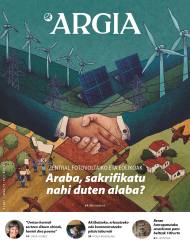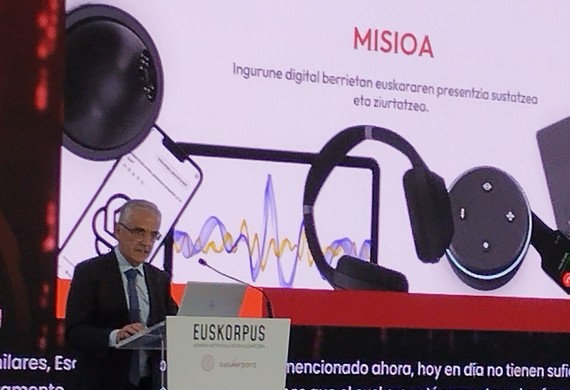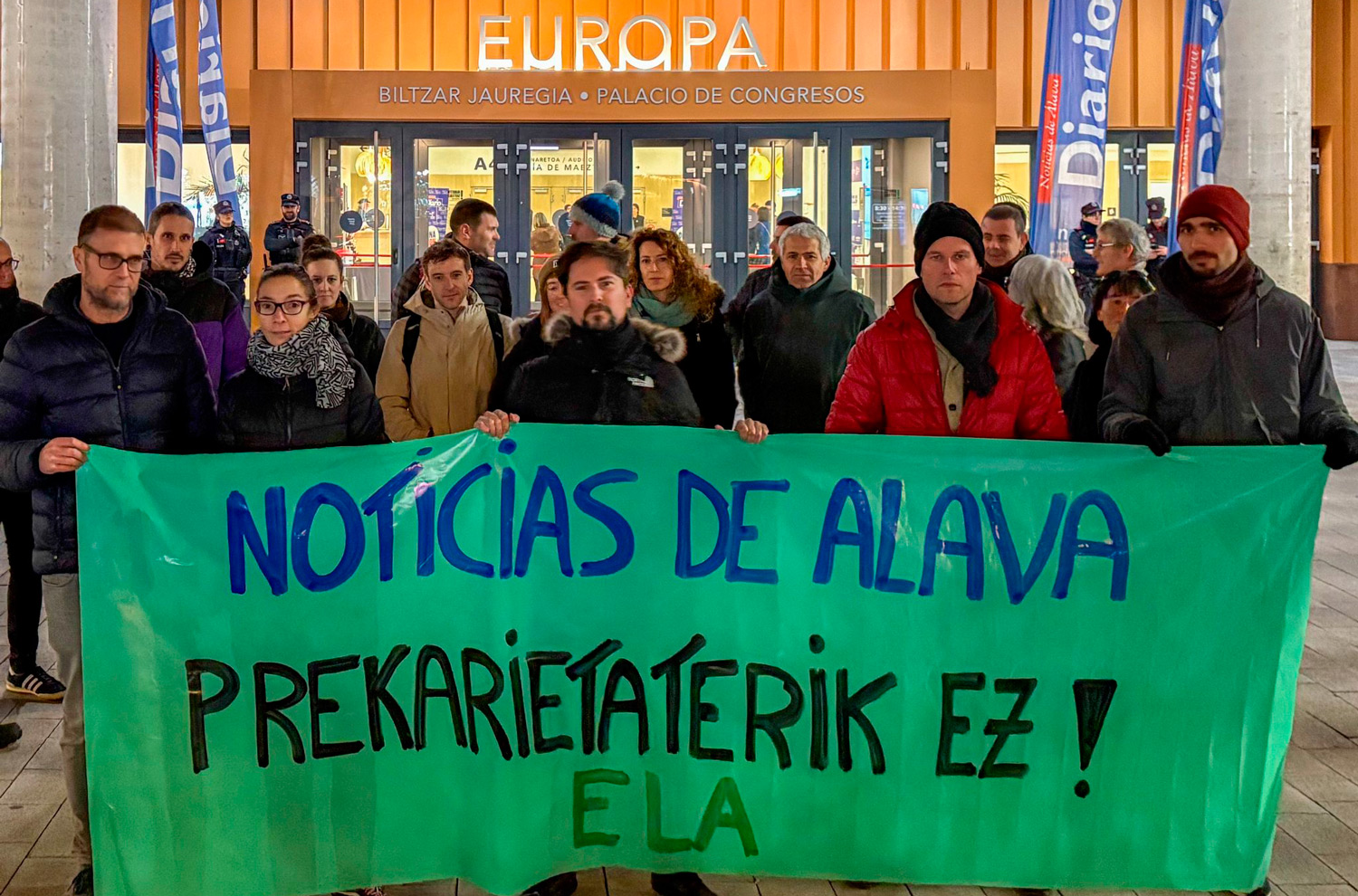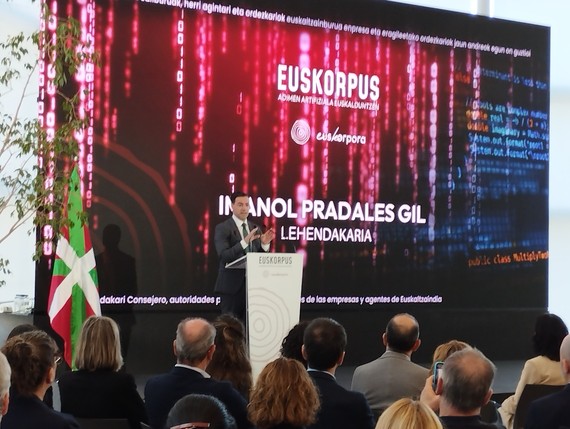Source of information and youth problems
- On the basis of the data published by the Ikusiker Audiovisual Observatory, experts in the field talk about the values and worldview that young people receive from digital devices and platforms.
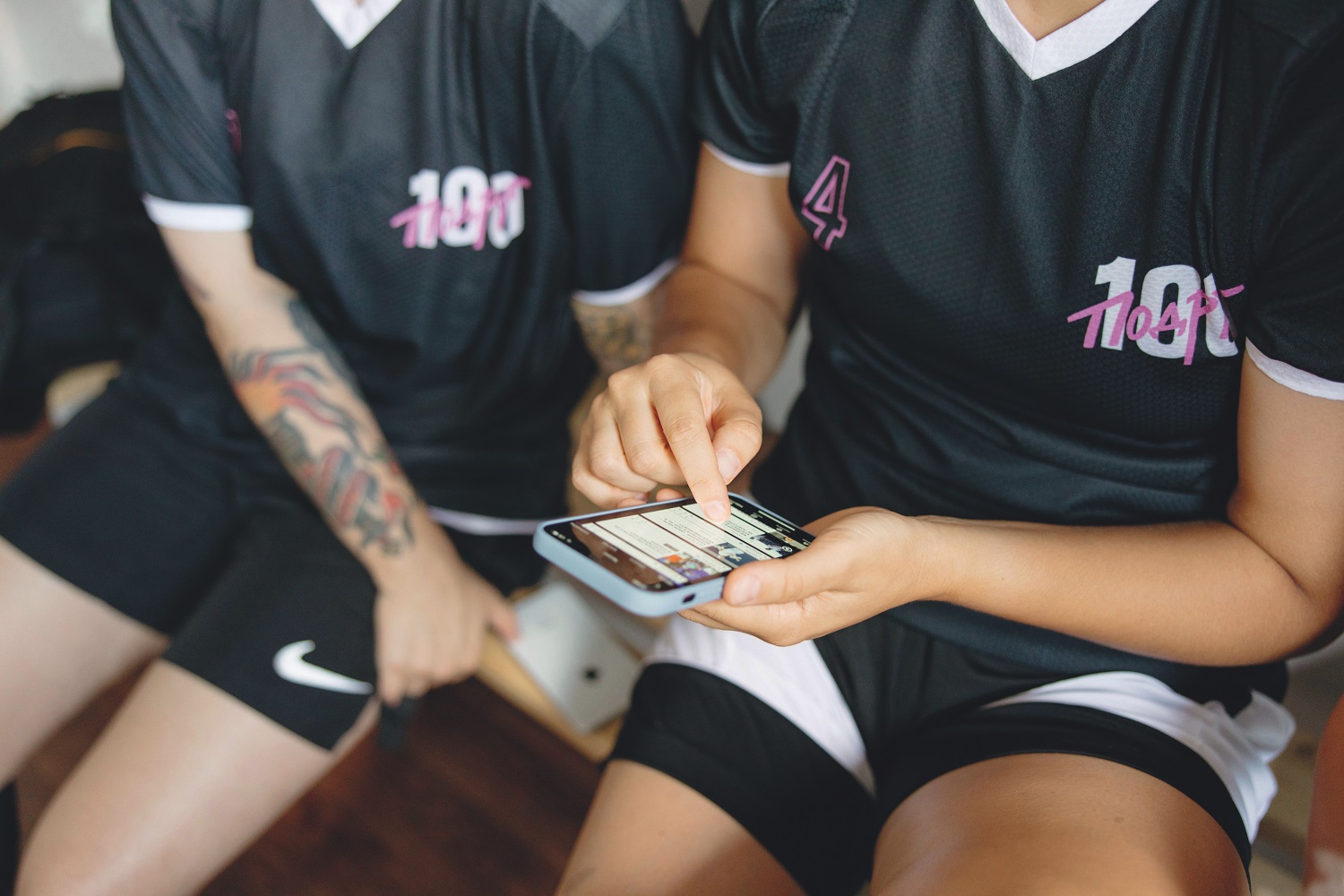
Digital devices and platforms have a great presence among young people. Several schools are expanding their digitisation and in recent years agreements have been signed with technological giants. During the course 2023-24, Ikusiker conducted surveys among 1,524 students aged between 11 and 17 years of Secondary Education in the Basque Country, and among 2,804 students from the University of the Basque Country (UPV/EHU) and the Public University of Navarra (UPNA) aged between 18 and 23 years. He asks them about audiovisual consumption.
Regarding technological devices available to young people, almost all respondents have a mobile phone (94.8% in the ESO and 99.1% in the university), those with a laptop are the majority (80.2% in the ESO and 97% in the university) and more than half have video consoles and tablets. See Ros, the promoter of the Bidelagun project, explains that technological devices are provided to them when the young brain is “undeveloped” and “without receiving the necessary training”, and that in the digitalization plans of many educational centers the use of electronic devices has been driven “for more economic than pedagogical reasons”. The screen says they should enter the ESO “in a restricted and controlled way”.
According to Mikel Cerezo, a member of the Orain Prevention project, the use of computers in schools should be “what prepares you for life” from an academic point of view. For his part, the psychology professor at the UPV/EHU Juan Manuel Machimbarrena has stated that if technology is used in a “responsible and critical” way, its potential can be “transformative in many areas”, although often the damage is evident.
As for social networks, Cerezo said that in general it is not taught how they are managed in the centers and that this learning must be done not only from the center, but also from home. Machimbarrena said that the education system should incorporate "a digital education on technology" to publicize the risks and benefits of social networks. He says that parents should apply the rules, “promoting more responsible use than prohibition.”
The inability to reduce the use of social networks
Social media use is common among young people, especially in the case of Instagram and TikTok. Among those surveyed in Ipar Euskal Herria, the percentage of Instagram users predominates between 31 and 60 minutes a day (30.7%), while in Hego Euskal Herria most use it more than once a day (69.6% in that and 81.7% in the university). As for the TikTok network, most of them use more than once a day.
Asked about whether they would like to spend more or less time on networks, more than half of college students have responded that they would like to spend "much less time" or "a little less", while most of them see no reason to increase or decrease time.
Rose and Cerezo agree that as young people approach age, they are aware of their dependence on social networks, with a more elaborate critical mentality and a greater awareness of its use. However, despite being aware of this, it is "impossible" for them to escape from this press conference. “They talk about resignation and personally this brings me great sadness,” says Rose. In the same vein, Cerezo has pointed out that the elderly have reflected on their experience and that many know that they are making an "inadequate" use, but that "it is very difficult to escape this whirlwind".
"These smart smartphones and smartphones have entered our lives and come to stay," he says. Cerezo considers inappropriate use when it has a negative impact on another area of life. The Machimbarrena, for its part, considers that its use is inadequate when it “causes harm” to the user. He explains that damage can be “intrapersonal” – when problems are related to the loss of control of oneself – or “interpersonal” – when problems arise with parents or teachers.
However, Cerezo has pointed out that in the use of technology and social networks in recent years there has been a “change of trend”, as minors and adults are more aware of the consequences of using these technologies without control.
The role of technological giants
The social educator of the association Orain Prevencion has stressed that it should not be forgotten that technologies and social networks depend on “large corporations” and that, although they offer resources free of charge, their objective is to obtain an economic benefit. "Today we give a lot of data to the tech giants who take advantage of them to feed their technology," said Eli Pombo, member of the communications company Iametza, in the interview we made at the door of the Euskarabildua conference: "Data is the most precious asset of all times," he added. Cerezo also believes that information is “the most important power of this time.”
Pombo and Rose talk about the algorithms that these corporations use. Pombo states that through them they seek to “offer content to our liking and desire”, which leads us to “an increasingly reduced conception of the world” and “no more diverse”. Project member Bidelagun added that algorithms are causing “individuals’ ideas and interests to become more and more radical.”
Creating a non-existent reality
Asked about the reality reflected by social networks and new technologies, Cerezo has responded that beforehand they show us a “prepared” and “beaten” reality with concrete objectives, which can put a person “against their reality”. It says that social networks enter the lives of adolescents when they are “in a situation of tremendous personal or emotional vulnerability” and can condition their character and critical thoughts.
Machimbarrena, professor at the UPV/EHU, told us that with what is shown in social networks the user must be “critical”, since the creator of the content “differs what he wants to show”. Cerezo considers it “very important” to look and question from a critical perspective what is seen on social networks: “Our adolescents and children should know the other face of what they are seeing and then have that information available, especially to make decisions that can benefit or protect them.”
Ros and Cerezo have referred to the filters used in social networks to highlight the experience. Project member Bidelagun talks about tools that embellish the face: “The problem is that a young man who sees these images for five or six hours a day, considers those artificial faces as natural, they become models of beauty in his unconscious, and from there come the problems of dysmorphia, eating disorders, the negative influence on self-esteem, and in some cases the ideas of suicide.”
“Effortless success”
Rose has stressed that the messages given by many youtubers and influencers reflect "an effortless success" and spread "a false idea of happiness," and Cerezo has affirmed that young people compare "whether they want or not" what they see on social networks with their own life.
Machimbarrena explains that to get the attention of the user in social networks “mechanisms such as the continuous scroll – vertical or horizontal movement to see the contents – and the quick scroll are prioritized”; and Rose adds that “it often doesn’t matter” if what is shown is true or false. Cerezo has underlined the volume of information society currently has: “XIX. In the twentieth century, we have gone from very few people to having too much information.”
The study conducted by Ikusiker has shown that in the new media ecosystem, social networks are the source of information for most young people, ahead of conventional television channels. Most traditional media prioritize content that they share on social networks, but among the younger ones, the explanations of youtubers, instagramers and tiktokers get a very similar amount of data.
Ortutik itzuli berritan erabaki nuen Twitterretik alde egitea, oraindik Twitter zenean. Auzolan batera joan nintzen, brokoliak eta azaloreak landatzera, eta mindfulness efektua zapuztu zidan algoritmoak, idazle feminista transgorrotatzaile baten txioak jaurtitzearekin... [+]
Iragana ulertzen saiatzen eta etorkizuna bideratzen, oraina joaten zaigu zenbaiti. Nire proiektuetako bat (hasi baina landu ez dudana oraindik) dudan zuhaitz genealogikoa egitea da. Horretan lagunduko didan liburutxo bat ere erosi nuen. Baina, hain da handia lana, liburutxoa... [+]
Sustatun agertutako salaketa, LaLiga futbol erakunde espainiarraren eta Movistar/Telefonicaren arteko tratuek euskarazko zerbitzuak kaltetzen dituztela Interneten (kasu hartan Egunean Behin jokoan irudiak desagertzea zen kontua), hedatu egin da. Tokikom-eko euskarazko tokiko... [+]
Silicon Valley-ko oligarkia AEBetako gobernura iritsi berritan lehertu da adimen artifizialaren (AA) burbuila. Txip aurreratuen erraldoia den Nvidia-k urtarrilaren amaieran izandako %16,8ko balio galera, egun bakar batean inoiz izan den burtsa balio galerarik handiena da... [+]
Geroz eta ekoizpen gehiagok baliatzen dituzte teknologia berriak, izan plano orokor eta jendetsuak figurante bidez egitea aurrezteko, izan efektu bereziak are azkarrago egiteko. Azken urtean, dena den, Euskal Herriko zine-aretoak gehien bete dituztenetako bi pelikulek adimen... [+]
Ikerketa bat egin dute Alemanian, hauteskundeen atarian: kontuak sortu dituzte TikToken, X-n eta Instagramen, eta aztertu egin dute algoritmoak zer nolako edukiak erakusten dituen. Guztietan, algoritmoak eskuinera eta eskuin muturrera jotzen du gehien, TikToken nabarmen.
Euskorpora elkartearen eta Euskorpus proiektuaren abiatzeak hautsak harrotu ditu. Pello Otxandiano EH Bilduko Eusko Legebiltzarreko oposizio buruak Euskorpusena akatsa dela uste du, "ezjakintasuna edo estrategia klientelarra". EH Bilduk galdera sorta egin du... [+]
Diario de Noticias de Álava (DNA) egunkariko langileak sinadura greban daude, eta aspaldi ari dira beren lan baldintza “miserableak” eta horiek kazetaritzaren kalitatean duen eragina salatzen. 2013tik soldatak izoztuta dituzte, eta ordutik erosahalmenaren %30... [+]
There are many ways to gain power; not all are beautiful. There are those who want to divide the power and the responsibility that it entails with it, who seek authority. Others have a lot of respect for him and the fact that each step is so measured makes them unable to make a... [+]
From the Association of Parents of the Instituto Arratia Small Tram we want to encourage reflection on the use of screens in the learning community.
Lately there is a lot of concern about the impact of screens on children and adolescents. This responsibility extends from... [+]
Azken boladan gero eta gehiago entzuten dugu gazte askok etxebizitza erosteko ahalmenik ez dugula. Batzuetan, badirudi ez dagoela beste gairik; egia da gai serioa dela. Niri neuri ere, 31 gertu izan arren, oraindik pixka bat falta zait neurea izango den etxebizitza lortzeko... [+]
“I will overturn, overturn, overturn, it[...]”
Ezekiel 21:27 – King James Version
“Above all algorithms, below all algorithms”
Xabier Landabidea
I’m uncomfortable, uncomfortable with the almost religious attitude our society has taken towards technology, and... [+]







